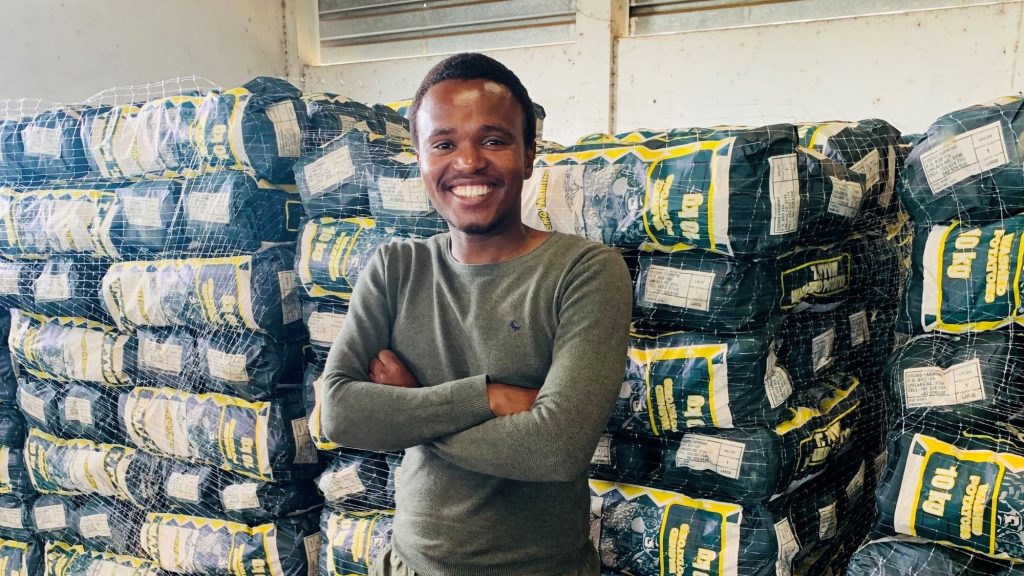LG’s 100-Inch QNED evo AI TV Redefines Big-Screen Viewing in South Africa In a bold leap forward for home entertainment, LG Electronics South Africa…
Agritech disruptor AgriKool vows to increase farmer profits

Amid ever-rising food prices, interest rate hikes, fuel increases and changed weather patterns, a South African agritech start-up, AgriKool, hopes to bring down the cost of food by cutting out middlemen and reducing transport costs while increasing profits for farmers.
AgriKool, an e-trading platform, connects agricultural producers to buyers to facilitate the sale of products between retailers and farmers. It provides all the aspects of agricultural trading from purchase agreements to the delivery of goods.
“Adverse weather conditions, interrupted power and water supply have severely affected the cost of food as farmers all over South Africa are grappling with low yields. AgriKool enables retailer buyers to pay less for agricultural produce and farmers to make more, and provides information that increases profits for farmers,” says Zamokuhle Thwala, chief executive of AgriKool.
AgriKool collates data and insights that are used to inform farmers about market trends, particularly pricing. A grower simply lists the products that they have available for sale. Buyers engage the grower and agree on the price. It also ensures timely payment and then facilitates the transportation of the produce to the buyer.
“Transport and logistics account for significant costs in the agricultural supply chain – as much as 35% of the total operating costs for farmers. To reduce these costs, AgriKool partnered with a trucking fleet that carefully maps out routes to ensure goods are transported at every leg of a truck’s journey, which increases vehicle and driver utilisation. This method reduces fuel usage, lowering transport to just 20% of operating costs,” adds Thwala.
Disrupting the agri industry
The industry is ripe for overhaul as farmers take great risk in the agri-value chain, unable to predict whether they will make a profit or a loss. Usually, farmers take their produce to municipal markets in warehouses where farmers and agents (buyers that sell to retailers at a profit margin) gather.
Here agents bid to buy fresh produce. Farmers cannot predict how much they will make because agents determine the final price of goods. The warehouse takes a 5% commission on the value of goods sold, while the agent takes a 7.5% commission – whether the farmer makes a profit or loss. AgriKool cuts out the expenses of both the agent and the municipal market.
Thwala concludes, “AgriKool has on-boarded a number of large commercial buyers and suppliers including Freshmark (Shoprite’s fresh produce arm) and has been promoted to a higher-level supplier with Boxer. We have also onboarded 21 large commercial and 100 small growers, replacing the Durban Fresh Produce Market as an intermediary between these large growers and retailers. Our revenue has grown by over 400% a month this year.”
AgriKool future plans
AgriKool is based in Pietermaritzburg in KwaZulu-Natal with plans to expand to other provinces in the coming year. It has received extensive support from the AlphaCode Incubate programme which provides funding, guidance from performance coaches and a panel of advisory experts, access to co-working space and opportunities to apply for further early-stage investment.
Dominique Collett, head of AlphaCode and a Rand Merchant Investments Holdings executive commented, “AgriKool was one of 200 start-ups which applied for our programme and it stood out as one of the top five businesses in its cohort as it solves a particularly desperate pain point for South Africans – the very high cost of food. The business continues to make steady progress and grow.”
The AlphaCode Incubate programme has disbursed R40 million in funding to 50 tech-enabled start-ups over the past seven years. It is viewed as South Africa’s most prestigious start-up initiative. AlphaCode Incubate awards entrepreneurial packages to South Africa’s most promising start-ups with the support of Rand Merchant Investments.
ALSO READ: Agritech start-up raises R1.7m in seed funding round

